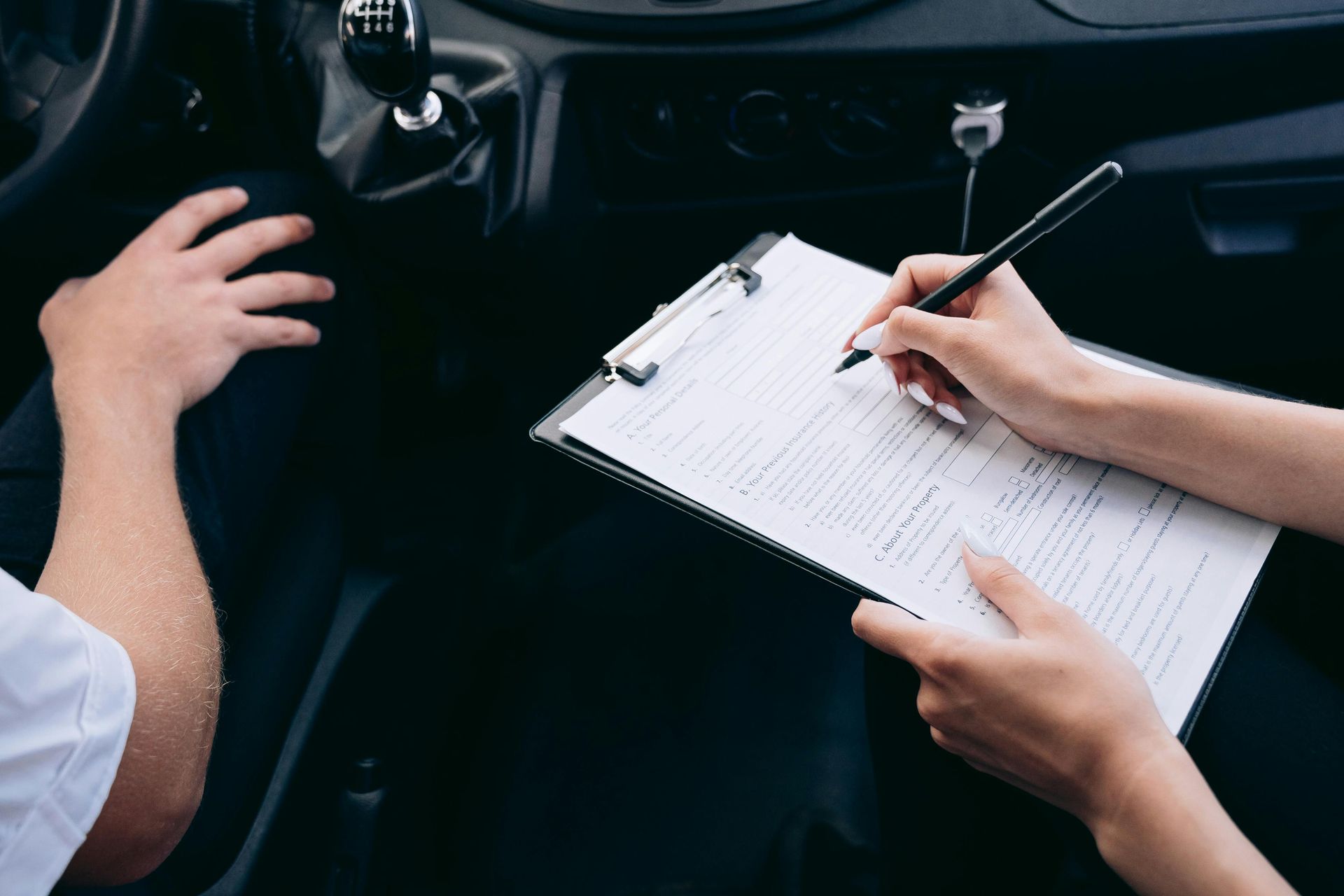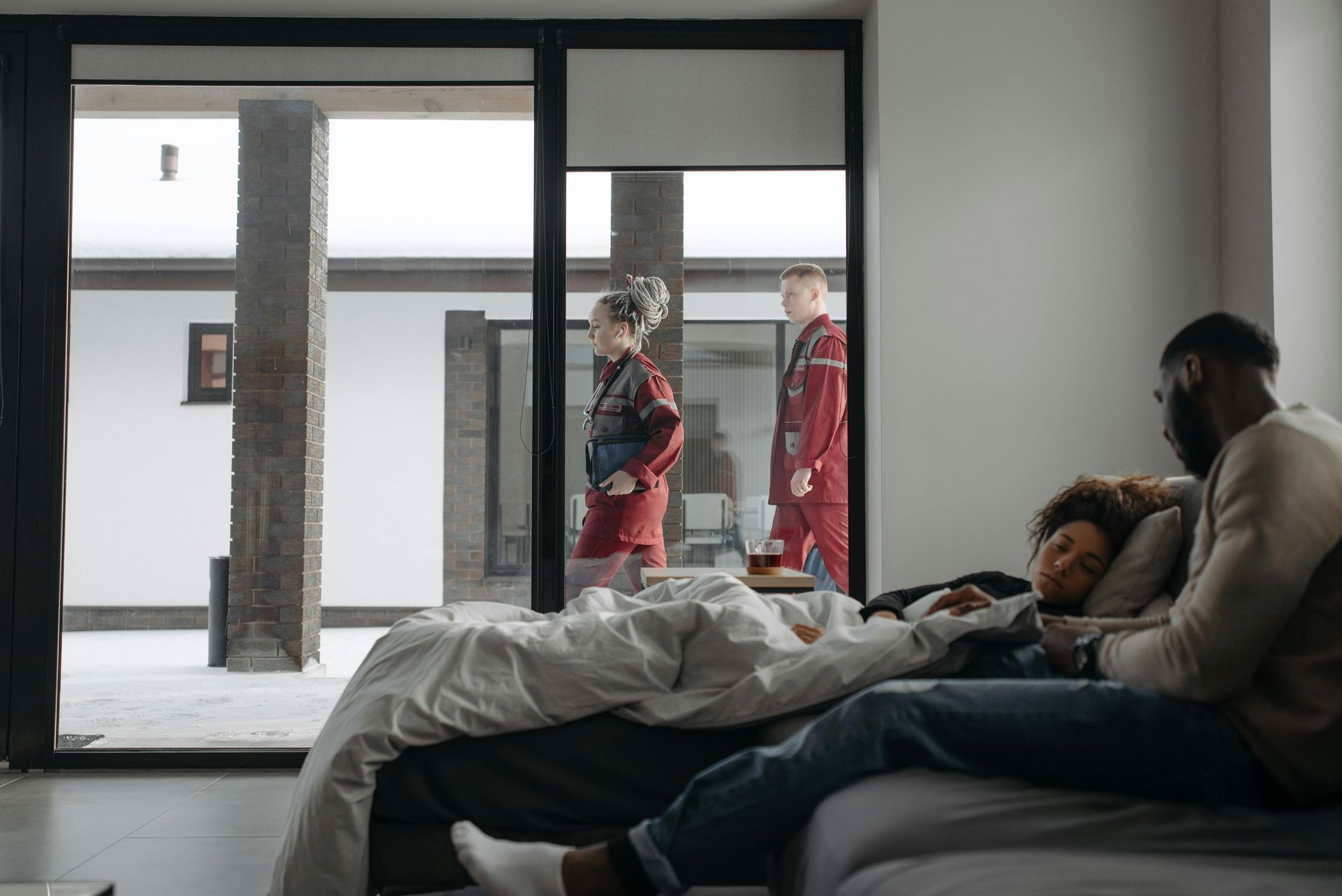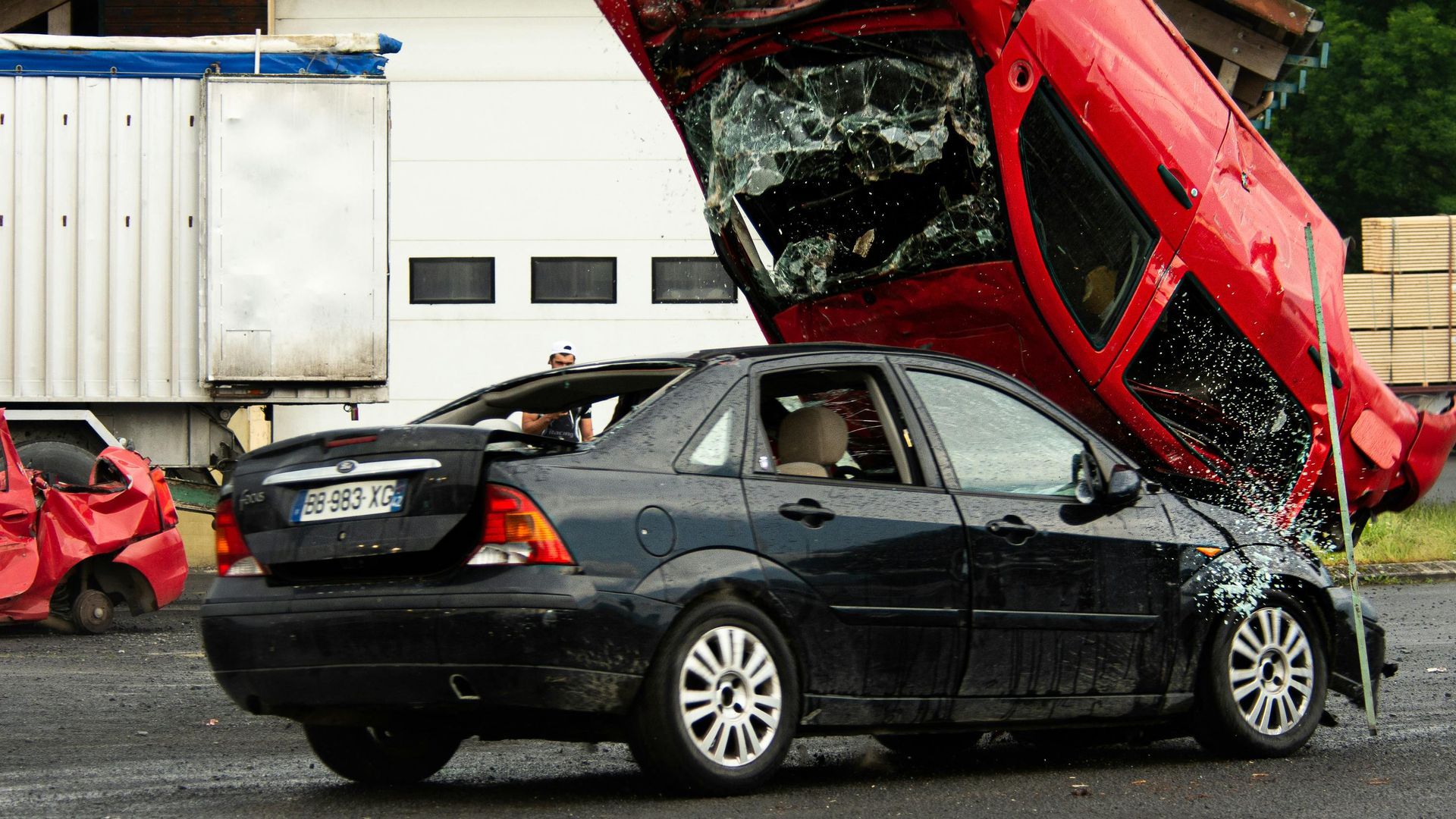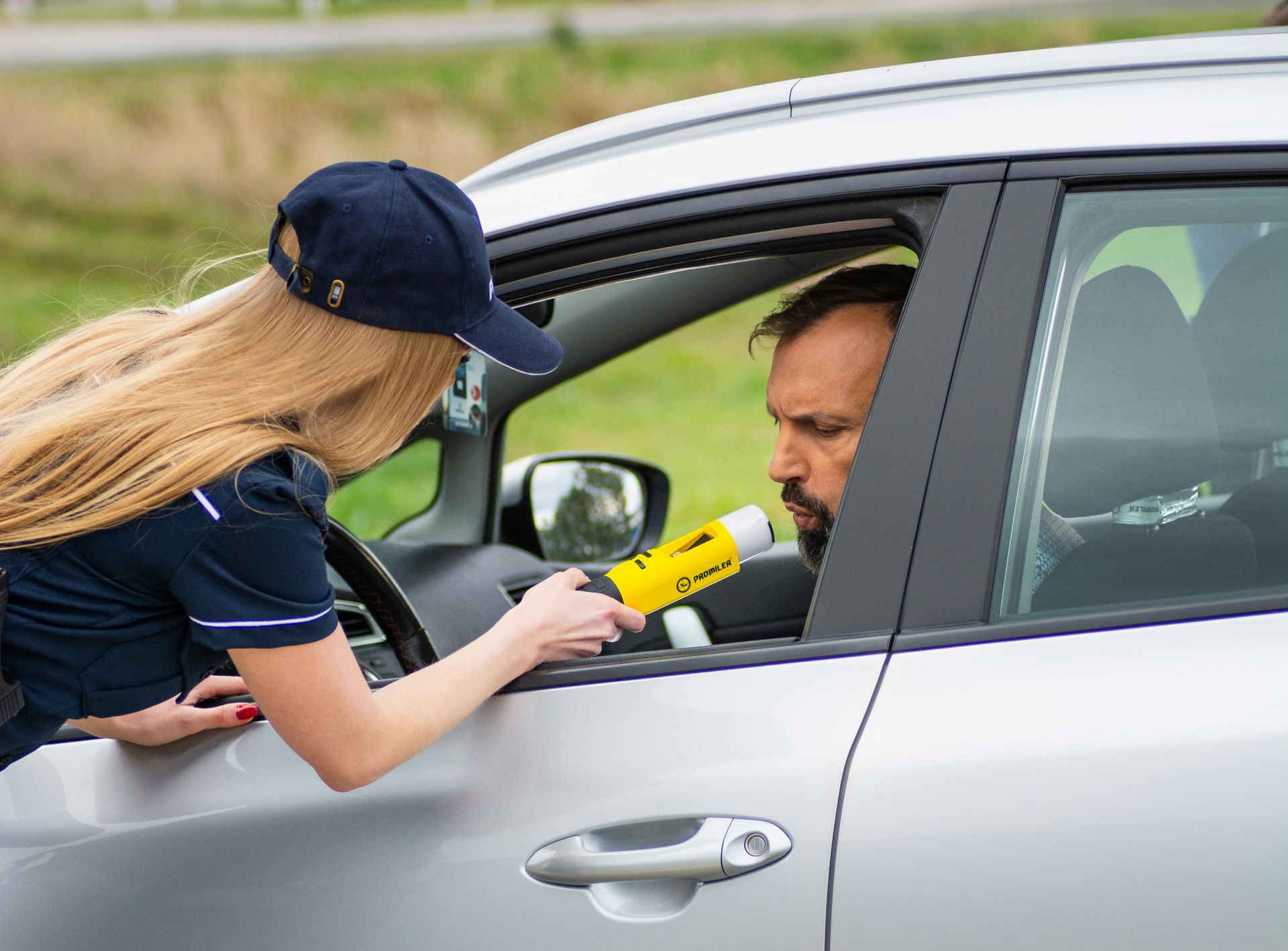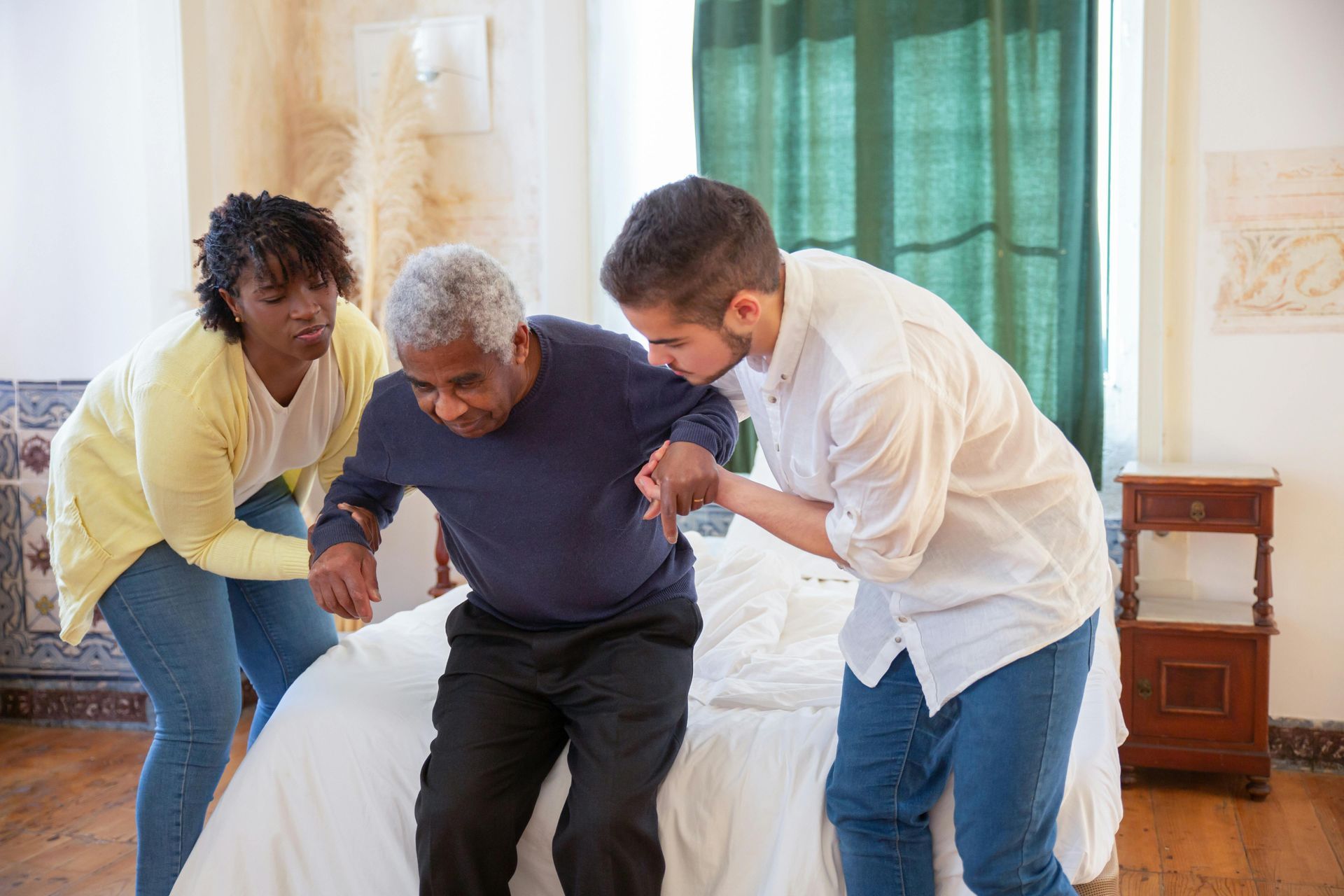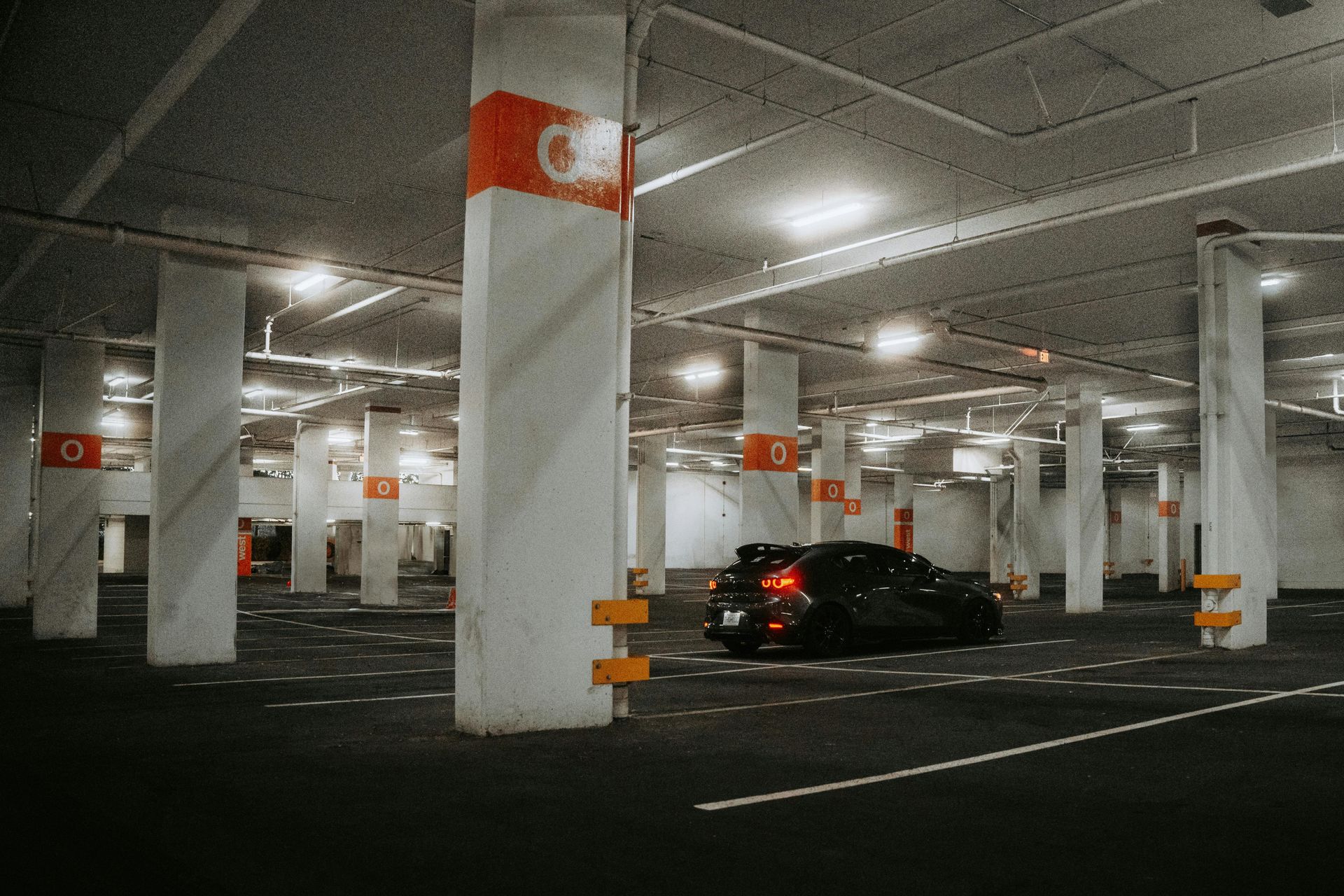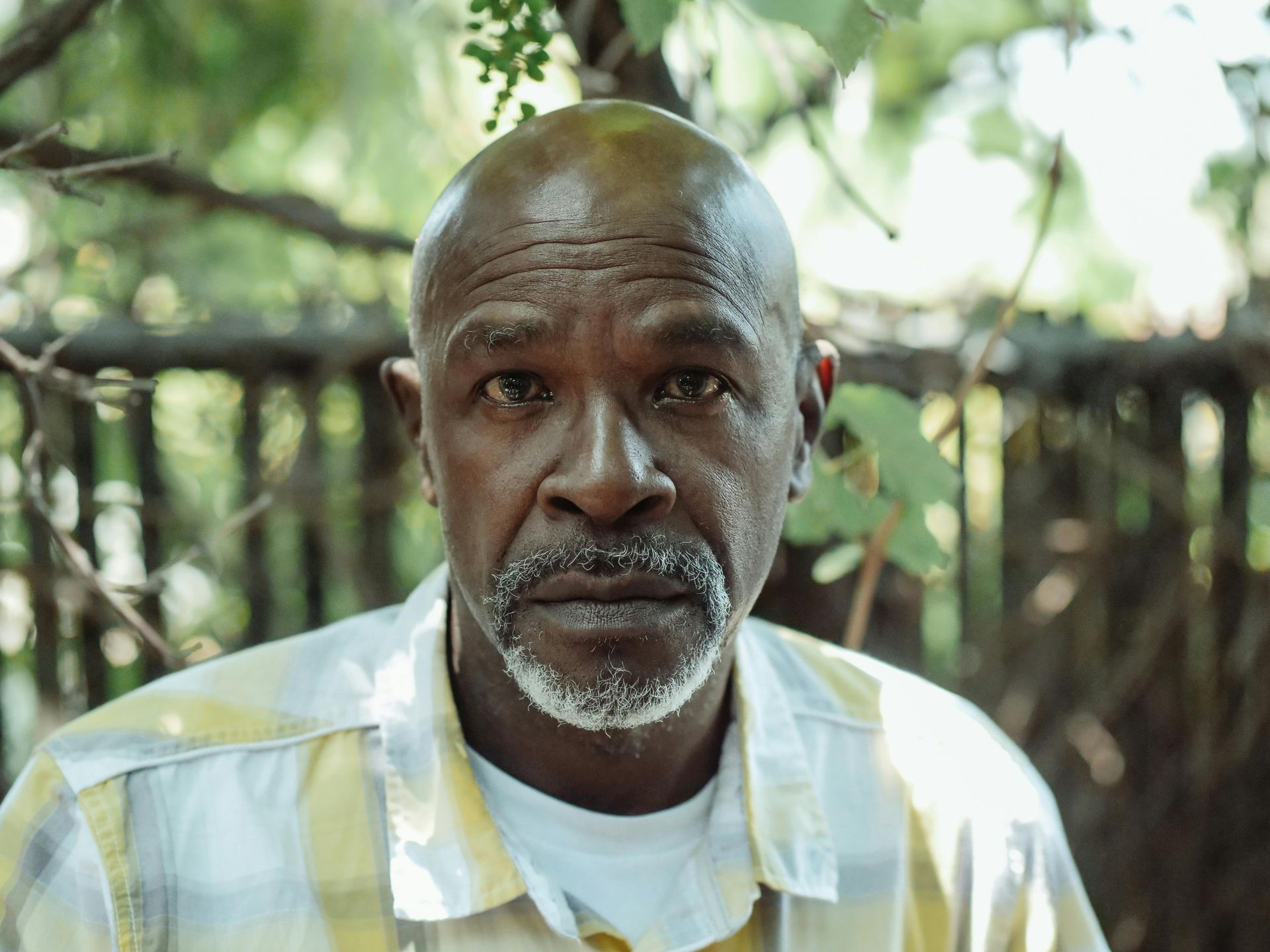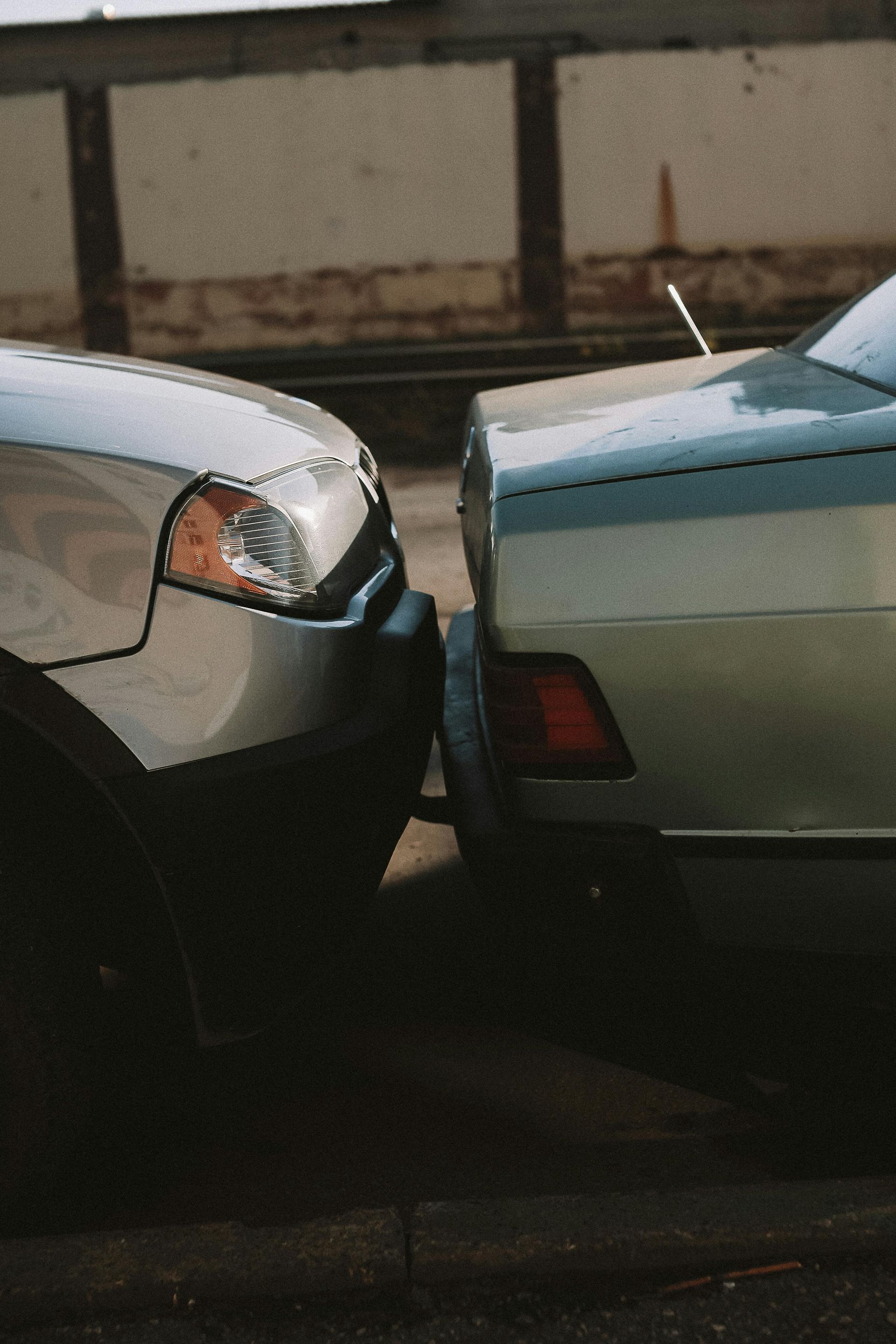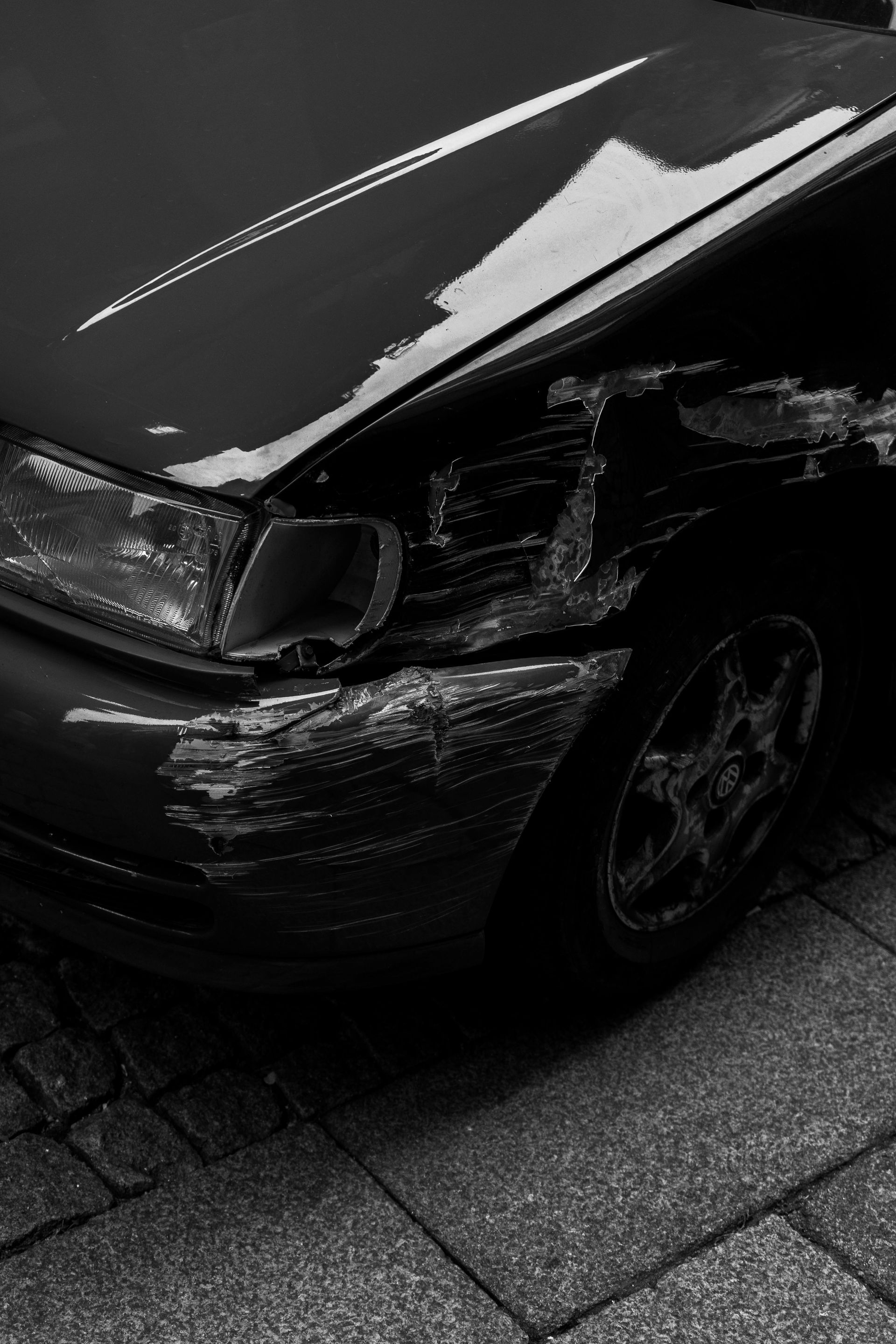Get the Representation You Deserve: The Top 10 Car Crash Claim Mistakes to Avoid in Georgia
The familiar rhythm of a drive through Atlanta can be shattered in an instant. Whether you’re navigating the constant flow of traffic on the I-285 perimeter, commuting on the Downtown Connector, or simply driving down Peachtree Street, a sudden car crash can leave you feeling overwhelmed, disoriented, and in pain. In the aftermath of a collision, while you're trying to process what happened, you can unknowingly make critical mistakes that insurance companies will exploit to devalue or deny your rightful claim.
These insurance corporations have vast resources and teams of legal professionals dedicated to protecting their bottom line, not your well-being. To them, your injury is a liability to be minimized. To secure your future and your recovery, you need an advocate with the experience and integrity to guide you through Georgia’s complex legal system.
Daniel R. Crumby stands as one of Atlanta, Georgia's most experienced and trusted personal injury lawyers. He has built a reputation on providing quality representation and ensuring his clients get the full and fair compensation they deserve. To help you protect your rights from the very beginning, here are the top 10 car crash claim mistakes to avoid in Georgia.
1. Delaying or Forgoing Medical Treatment
The Mistake: You walk away from the crash feeling shaken but not seriously injured. The adrenaline is pumping, masking any immediate pain. You decide to go home and rest, figuring you’ll see a doctor only if the pain gets worse in a few days.
Why It's a Mistake: This is one of the most detrimental mistakes you can make. Insurance adjusters look for any reason to dispute a claim. A delay in seeking medical care creates a "gap in treatment," which they will use to argue that your injuries are not severe or were not caused by the crash at all. They might contend that something else must have happened during that "gap" to cause your injuries.
What to Do Instead: Seek a comprehensive medical evaluation immediately after any car crash, no matter how minor it seems. Go to an emergency room, an urgent care clinic, or your family doctor. This creates an official medical record that establishes a clear timeline, directly linking your injuries to the collision and creating a vital piece of evidence for your claim.
2. Failing to Report the Accident to the Police
The Mistake: The other driver is apologetic and asks to handle the situation privately to avoid involving insurance or law enforcement. The damage looks minimal, so you agree to just exchange phone numbers.
Why It's a Mistake: Under Georgia law (O.C.G.A. § 40-6-273), you are required to report an accident if it results in injury, death, or apparent property damage of $500 or more. A police report is an essential, objective document. It contains the identities of the drivers and witnesses, insurance information, a diagram of the scene, road conditions, and the officer’s initial observations about how the crash occurred. Without it, the other driver could later deny the accident happened or completely change their story, leaving you in a difficult "he said, she said" situation.
What to Do Instead: Always call 911 from the scene of the crash. A police report provides a foundational piece of evidence for your claim and is invaluable in establishing the facts of the case.
3. Admitting Fault or Apologizing at the Scene
The Mistake: In the disorienting moments after a crash, it's a natural human reaction to say, "I'm so sorry," even if the accident wasn't your fault. You might be trying to be courteous or de-escalate the situation.
Why It's a Mistake: In the context of a personal injury claim, an apology can be legally interpreted as an admission of guilt. The other driver, their insurer, and their lawyer will use your words against you to shift blame and reduce their liability. You may not be aware of all the factors that contributed to the crash—perhaps the other driver was texting, speeding, or ran a red light.
What to Do Instead: Remain calm and stick to the facts. Exchange driver, vehicle, and insurance information as required by law. Do not discuss how the accident happened or who is at fault with the other driver. Limit your discussion with the police to factual statements.
4. Giving a Recorded Statement to the Other Driver's Insurer
The Mistake: You get a call from a friendly insurance adjuster representing the at-fault driver. They express concern for your well-being and ask for a quick recorded statement to "process your claim faster." Believing it will help, you agree.
Why It's a Mistake: The adjuster’s job is to save their company money. They are professionally trained to ask cleverly worded, leading questions designed to get you to say something that undermines your own claim. They might get you to downplay your injuries or inadvertently accept partial blame. This recorded statement can then be used as evidence against you throughout the claims process.
What to Do Instead: You are not legally required to provide a statement to the other party's insurance company. Politely decline the request. The most effective response is to state, “I will not be providing a statement at this time. Please direct all future communication to my attorney.” This immediately protects you from their tactics.
5. Posting About Your Case on Social Media
The Mistake: You post photos of your damaged car on Facebook or update your friends about your recovery on Instagram. Later, a friend posts a picture of you smiling at a social gathering.
Why It's a Mistake: Assume everything you post online will be seen by the insurance company. Investigators will meticulously search your social media profiles for anything they can twist to their advantage. A comment about the accident could contradict your official report. A single photo of you trying to live your life can be presented out of context as "proof" that your injuries are not as debilitating as you claim them to be.
What to Do Instead: The safest policy is a complete social media blackout regarding your accident, injuries, and daily activities until your case is fully resolved. Set all your profiles to the highest privacy settings and ask friends and family not to post pictures of you or tag you in posts.
6. Misunderstanding Georgia’s Comparative Negligence Rule
The Mistake: You believe that if you were even slightly at fault for the accident, you cannot recover any compensation for your injuries.
Why It's a Mistake: Georgia follows a "modified comparative negligence" rule (O.C.G.A. § 51-12-33). This law states that you can recover damages as long as you are found to be less than 50% at fault for the accident. If you are found 49% or less at fault, you can still recover, but your award will be reduced by your percentage of fault. For example, if you have $100,000 in damages but are found 20% at fault, you can recover $80,000. However, if you are found 50% or more at fault, you are barred from recovering anything.
What to Do Instead: Do not assume you cannot recover if you think you might share some blame. The allocation of fault is a complex legal determination. An experienced attorney like Daniel R. Crumby can build a strong case to minimize your assigned percentage of fault and maximize your rightful compensation.
7. Waiting Too Long to Take Legal Action
The Mistake: You decide to wait and see how your recovery progresses or attempt to handle negotiations yourself before contacting a lawyer. Months, or even a year, pass by.
Why It's a Mistake: In Georgia, the statute of limitations generally gives you only two years from the date of the accident to file a personal injury lawsuit and four years for property damage claims (O.C.G.A. § 9-3-33). If you miss this deadline, you lose your right to sue forever. Furthermore, with each passing day, crucial evidence like surveillance footage can be lost, witness memories fade, and the insurance company gets more time to build its defense.
What to Do Instead: Consult with a trusted personal injury lawyer as soon as possible. Early intervention allows your attorney to preserve evidence, interview witnesses, and begin building a robust case from a position of strength.
8. Failing to Send an "Ante Litem" Notice for Claims Against the Government
The Mistake: You are injured when a MARTA bus, a City of Atlanta vehicle, or a State of Georgia patrol car causes your crash. You assume the claims process is the same as it would be with a private citizen.
Why It's a Mistake: This is a highly technical and often missed step that can completely bar your claim. When suing a government entity in Georgia, you must first provide a formal notice of your claim, called an "ante litem" notice. The deadlines are extremely strict: you generally have just six months from the date of the injury to file this notice with a municipality (like the City of Atlanta) and twelve months for claims against the state. Failure to comply with these precise requirements will result in the automatic dismissal of your case.
What to Do Instead: If your accident involved any government vehicle or employee, it is absolutely critical to contact an attorney immediately. An experienced lawyer will know these specific rules and ensure all required notices are filed correctly and on time.
9. Signing a Release of All Claims Too Quickly
The Mistake: The insurance company offers you a check. It seems like a reasonable amount to cover your immediate car repairs and medical bills. Eager to put the ordeal behind you, you sign the settlement paperwork.
Why It's a Mistake: That paperwork almost certainly includes a "Release of All Claims." Once you sign this document and accept the check, you permanently forfeit your right to seek any further compensation for this accident. If your injuries worsen or you require future surgery you hadn't anticipated, you cannot go back and ask for more money. The first offer is almost always less than the full value of your claim.
What to Do Instead: Never sign any documents or accept any settlement offer without a thorough review by your attorney. A trusted lawyer can assess the true long-term value of your claim, including future medical needs and pain and suffering, to ensure you don’t settle for less than you deserve.
10. Attempting to Navigate the Claim Process Alone
The Mistake: You are smart and capable, and you believe you can handle the claim yourself to avoid legal fees. You think your case is simple and that the insurance company will be fair.
Why It's a Mistake: This is the ultimate mistake that allows all the others to happen. The legal and procedural landscape of a car crash claim is filled with traps for the unwary. You are facing an industry with immense resources, legal expertise, and a financial incentive to pay you as little as possible. You lack the experience to properly value your claim, counter their legal arguments, and leverage the threat of successful litigation.
What to Do Instead: Level the playing field. Secure the quality representation you deserve. Hiring an experienced and trusted Atlanta personal injury lawyer like Daniel R. Crumby signals to the insurance company that you are serious about protecting your rights.
Book Your FREE Consultation Today
Your future well-being is too important to leave to chance. Don't let a preventable mistake compromise your physical and financial recovery. If you have been injured in a car crash in Atlanta or anywhere in Georgia, contact Daniel R. Crumby today to book your FREE consultation. Get the compensation and quality representation that you deserve.

